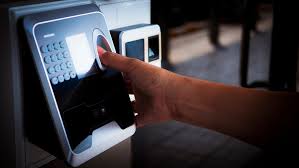
In the digital age, where both physical and cyber threats are more sophisticated and prevalent, the importance of an advanced access control system cannot be overstated. This article explores the multifaceted benefits of robust access control mechanisms, shedding light on their critical role in modern security strategies for various environments, from corporate offices to residential complexes.
Understanding Access Control Systems
An access control system is a security solution that determines who is permitted to enter or exit specific areas. These systems range from traditional lock-and-key setups to advanced electronic systems employing biometric scanners, RFID cards, and mobile applications. Beyond merely regulating entry, these systems are integral in managing and monitoring access to enhance security and operational efficiency.
The Critical Importance of Effective Access Control
- Uncompromised Security
- At the core of any security strategy, a sophisticated access control system ensures that only authorized individuals gain entry to sensitive areas. This mitigates the risks of unauthorized access, thereby preventing theft, vandalism, and potential breaches. Additionally, modern systems can provide real-time alerts and logs, offering a proactive approach to security management.
- Safeguarding Confidential Information
- In sectors dealing with sensitive data, such as healthcare, finance, and technology, safeguarding information is paramount. Access control systems restrict access to confidential data, ensuring compliance with data protection laws and safeguarding against breaches that could result in significant financial and reputational damage.
- Enhancing Personal Safety
- In environments like schools, hospitals, and residential buildings, access control systems are vital in protecting inhabitants from potential threats. By managing who can enter the premises, these systems help prevent intrusions, thereby creating a safer living and working environment.
- Meeting Compliance and Regulatory Standards
- Industries are increasingly subject to stringent regulatory requirements concerning security and data protection. Implementing an access control system helps organizations adhere to these standards, avoiding penalties and demonstrating a commitment to security and privacy.
Unveiling the Unique Benefits of Advanced Access Control Systems
- Streamlined Access with Convenience
- Modern access control systems offer unparalleled convenience, eliminating the need for cumbersome keys and providing easy entry through biometric scans, key cards, or mobile apps. This not only enhances user experience but also ensures smooth operational flow within the organization.
- Scalability for Growing Needs
- A significant advantage of advanced access control systems is their scalability. As businesses expand, these systems can easily accommodate new users, additional areas, and enhanced security measures without major overhauls, making them a future-proof investment.
- Cost-Effective Security Solutions
- While the initial setup of an access control system may require investment, the long-term benefits include significant cost savings. Reduced risks of theft, damage, and breaches lead to lower insurance premiums and potential loss prevention. Additionally, automated systems reduce the reliance on security personnel, thereby decreasing labor costs.
- Comprehensive Monitoring and Analytics
- Advanced systems provide detailed analytics and real-time monitoring capabilities. By tracking who accesses specific areas and when, organizations can generate insightful reports that aid in identifying security gaps, enhancing operational efficiency, and ensuring compliance with internal policies.
- Seamless Integration with Other Security Measures
- Modern access control systems can integrate seamlessly with other security infrastructures such as surveillance cameras, intrusion detection systems, and emergency response mechanisms. This holistic approach ensures a robust security network capable of addressing various threats comprehensively.
Diverse Implementation Methods for Access Control Systems
- Key Card Systems
- These systems use encoded cards to grant access to authorized individuals. The cards are scanned by a reader at entry points, and if the credentials match, access is granted. Key card systems are widely used in offices, hotels, and residential complexes due to their simplicity and ease of use.
- Biometric Systems
- Biometric access control systems utilize unique biological traits such as fingerprints, facial recognition, or iris scans to verify identity. These systems offer high security as biometric data is difficult to duplicate. They are commonly implemented in high-security environments such as government buildings and research labs.
- Mobile Access Systems
- Leveraging smartphones, these systems allow users to gain access through apps or Bluetooth-enabled devices. Mobile access control is highly convenient and can be easily integrated with existing mobile device management solutions, making it ideal for tech-savvy environments and flexible workplaces.
- RFID Systems
- Radio Frequency Identification (RFID) systems use tags or cards embedded with RFID chips that communicate with readers via radio waves. These systems are useful in environments where quick and contactless access is needed, such as hospitals and logistics centers.
- PIN and Password Systems
- Simple yet effective, these systems require users to enter a personal identification number (PIN) or password to gain access. While not as secure as biometric systems, they are cost-effective and easy to implement, suitable for small businesses and low-security areas.
- Multi-Factor Authentication Systems
- Combining two or more authentication methods (e.g., a key card and a fingerprint scan), these systems provide an extra layer of security. Multi-factor authentication is essential in environments requiring high security, such as data centers and financial institutions.
Transforming Security with Advanced Access Control
The evolution of access control systems has significantly transformed how security is managed in diverse environments. By combining cutting-edge technology with strategic access management, these systems not only protect physical and digital assets but also enhance operational efficiency and safety. Investing in a sophisticated access control system is not merely a security measure—it's a strategic decision that offers long-term benefits and peace of mind.
In conclusion, the importance of a good access control system is evident in its ability to provide enhanced security, safeguard sensitive information, ensure personal safety, and comply with regulatory standards. The unique benefits, including convenience, scalability, cost-effectiveness, detailed monitoring, and seamless integration, make advanced access control systems indispensable in today's security landscape.


